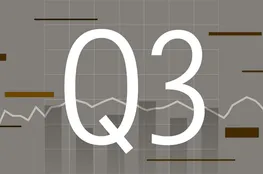Fernando Tatis Jr., the star Padres player, has initiated a significant legal action against Big League Advance (BLA), a lawsuit filed on Monday that could potentially void a $34 million future earnings contract he signed at just 17 years old. This lawsuit, formally presented in San Diego County Superior Court, centers on accusations of predatory practices employed by BLA, alleging they intentionally misled Tatis into what was essentially an illegal loan disguised as an "investment deal." The core of the lawsuit rests on BLA’s deceptive representation of its status, specifically concealing its lack of licensing and aggressively pushing Tatis into loan terms that directly contravened California’s stringent consumer protection laws. The legal action underscores serious concerns about the tactics utilized by BLA and raises questions about the safeguards in place to protect young baseball players entering into complex financial agreements. This case has garnered considerable attention within the baseball world and beyond, given Tatis’s prominent position and the substantial financial implications involved. The allegations suggest a deliberate effort to exploit a vulnerable athlete, highlighting the importance of due diligence and transparency in these types of arrangements. Legal experts are closely monitoring the developments, anticipating a protracted legal battle with potentially far-reaching consequences for both parties. The lawsuit’s success could set a precedent for protecting young athletes from similar predatory schemes, while BLA faces potential legal repercussions for its conduct.
The details of the contract and the specific terms of the loan are central to the legal arguments, and the outcome will likely hinge on the court’s interpretation of California’s consumer protection laws and BLA’s actions. The defense will likely argue that Tatis understood the terms of the agreement, while the prosecution contends that BLA’s misrepresentations fundamentally altered the nature of the deal. The legal proceedings are expected to be complex and drawn out, demanding a thorough examination of the facts and evidence presented by both sides. This case highlights the vulnerabilities of young athletes entering into financial agreements without adequate legal counsel or understanding of the potential risks. It serves as a crucial reminder of the importance of seeking independent legal advice and conducting thorough due diligence before committing to any investment opportunity, particularly those presented by entities lacking proper licensing or transparency. The Padres organization will undoubtedly be closely involved in advising Tatis and navigating the legal challenges ahead, demonstrating a commitment to protecting their star player.
The long-term impact of this lawsuit extends beyond the immediate financial implications, potentially reshaping the landscape of investment opportunities within professional sports and setting a new standard for ethical conduct within the industry. The case is a critical test of legal protections for young athletes and a significant development for the Padres organization as they strive to maintain a positive image and protect their star player. Furthermore, the case has prompted renewed scrutiny of investment firms operating within the sports industry, emphasizing the need for robust oversight and regulation to ensure fair and ethical practices. The Padres organization has yet to formally comment on the lawsuit, but the situation undoubtedly presents a significant challenge and a potential distraction for the team as they navigate this legal battle. The details of the contract and the specific terms of the loan are central to the legal arguments, and the outcome will likely hinge on the court’s interpretation of California’s consumer protection laws and BLA’s actions.
























